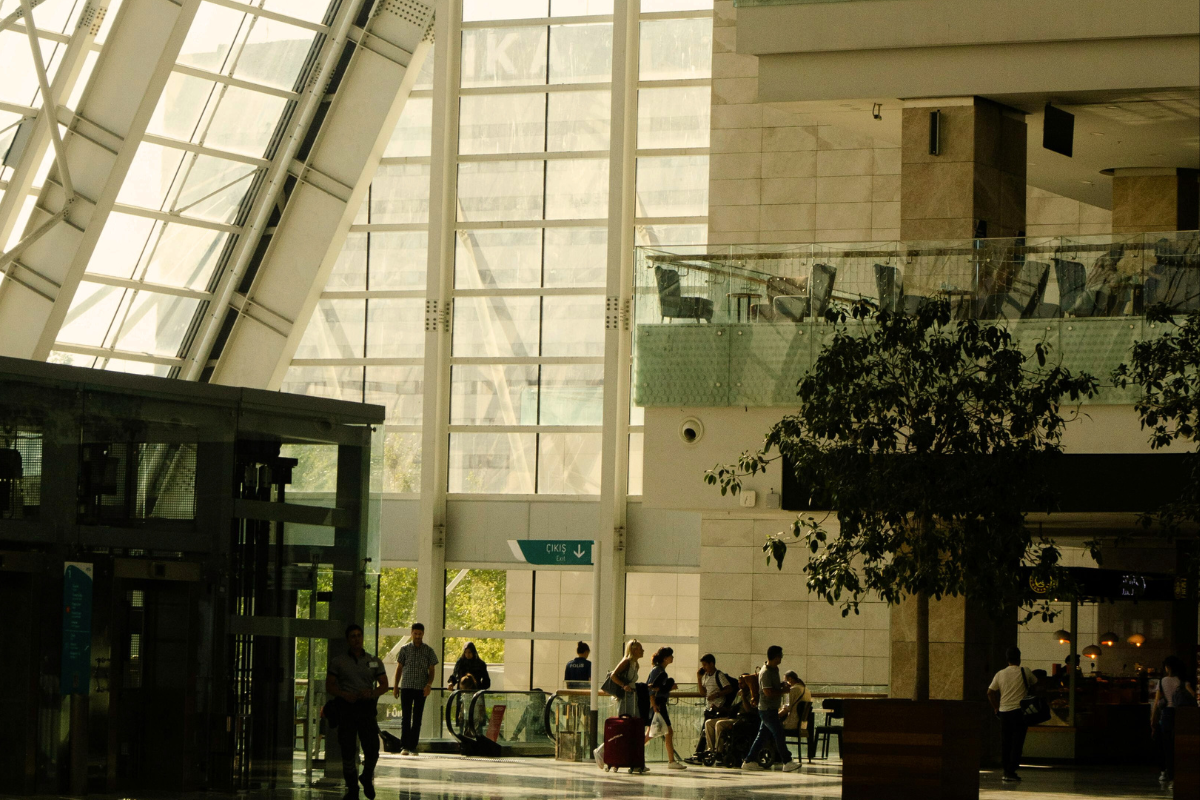As temperatures rise and daylight hours extend, commercial buildings face increased energy demands, potential overheating, and regulatory compliance challenges. A proactive maintenance strategy can enhance tenant comfort, reduce energy costs, and extend the lifespan of critical building systems. With UK summer temperatures expected to rise due to climate change – average summer temperatures have already increased by 1.2°C since the 1960s – building managers must act early to prevent costly inefficiencies and system failures.
Read our guide to learn about a proactive maintenance strategy for the summer months.

Delaying essential maintenance until peak summer can lead to higher energy consumption, unexpected equipment failures, and regulatory non-compliance.
Lower Energy Bills – Preventative maintenance reduces inefficiencies, cutting energy waste. Research by the Carbon Trust indicates that poorly maintained HVAC systems can consume up to 60% more energy than necessary, significantly increasing operational costs.
Improved Tenant Comfort – A well-cooled, ventilated space enhances tenant satisfaction and productivity. Studies show that even moderately raised temperatures degrade work performance after an hour.
Compliance & Safety – Addressing TM44 regulations, fire safety, and Legionella risks in advance prevents costly fines and liabilities.
Extended Equipment Lifespan – Regular maintenance prevents overheating-related failures in HVAC and electrical systems.
With air conditioning systems accounting for up to 40% of commercial energy use, pre-summer servicing is essential. Ensuring HVAC units, air handling systems, and mechanical ventilation are functioning at peak efficiency before demand spikes can lower costs and prevent breakdowns during heatwaves.

HVAC systems should be inspected for:
Refrigerant levels – Low levels reduce cooling efficiency and increase compressor wear.
Filter cleanliness – Blocked filters reduce airflow, making units work harder and consume more energy.
Ductwork efficiency – Leaks in duct systems can cause up to 30% of conditioned air to be lost before reaching occupied areas.
Learn more about how HVAC optimisation can help with energy mangement here.
Beyond basic servicing, natural ventilation can enhance energy efficiency. Night purging, which flushes out heat using cooler evening air, reduces reliance on mechanical cooling, while heat recovery ventilation (HRV) systems improve air quality while maintaining temperature balance. Zonal cooling strategies, where temperature control is adjusted based on occupancy, can significantly lower unnecessary energy use in underutilised spaces.
Compliance with TM44 air conditioning inspections is legally required for systems over 12kW. These inspections not only ensure regulatory compliance but also identify inefficiencies that can lead to energy waste and operational failures. Buildings that comply with TM44 recommendations often see energy savings of 15-20%.
Cooling costs rise in the warmer months, but optimising energy efficiency can keep them under control. Many buildings focus on insulation for winter, yet effective insulation also plays a role in preventing excessive heat gain, reducing the need for mechanical cooling.
Lighting is another overlooked factor in indoor heat generation. Older fluorescent lighting not only consumes more energy but also produces more heat, making LED lighting a more sustainable alternative. Integrating smart lighting controls further enhances efficiency by ensuring lights are only active when needed. Similarly, implementing peak load management strategies – such as shifting energy-intensive activities like data centre cooling to off-peak hours–helps keep energy costs down.
Modern Building Management Systems (BMS) should be optimised for warmer months. Smart sensors and automated cooling adjustments based on real-time occupancy and external weather conditions can prevent energy waste, ensuring climate control remains efficient while keeping costs down. Peak load management, where high-energy activities (such as data centre cooling) are scheduled for off-peak hours, can also significantly reduce energy bills.
Commercial buildings, especially those with large glass facades, are highly susceptible to solar heat gain, which can lead to indoor temperatures exceeding comfortable levels. Studies by CIBSE suggest that passive cooling measures can reduce cooling loads by up to 50%, significantly improving energy performance.
External shading solutions such as brise soleil, reflective films, or external blinds can prevent overheating. Additionally, living walls and green roofs provide natural insulation, reducing ambient temperatures while enhancing air quality.
Managing humidity is just as crucial as temperature control, particularly in critical areas such as server rooms, storage facilities, and archives. High humidity levels can lead to mould growth, equipment malfunctions, and structural damage. Dehumidification systems help regulate moisture levels, protecting assets and ensuring a comfortable indoor environment.
Warmer temperatures increase the risk of Legionella bacteria growth, particularly in water storage tanks, cooling towers, and infrequently used water systems. Regular system flushing and temperature monitoring are essential to prevent outbreaks, which can lead to severe health risks and legal consequences.
Smart irrigation systems should be installed to manage outdoor landscaping efficiently, ensuring water is only used when necessary, reducing waste and lowering operational costs. Fire safety is another key concern during hot, dry conditions. Routine inspections of fire suppression systems, electrical panels, and emergency alarms should be conducted before peak summer months to mitigate overheating risks.
The unpredictability of UK summers, with heatwaves, storms, and power surges, can place unexpected strain on building infrastructure. Conducting roof inspections to check for leaks, clearing drainage systems to prevent flooding, and ensuring backup generators and UPS systems are operational will minimise downtime and prevent costly disruptions.
During heatwaves, electricity demand surges, increasing the risk of power outages. Ensuring that cooling systems and critical equipment have backup power can prevent loss of business operations.

In the UK, spring and summer bring unique challenges for commercial buildings, from fluctuating temperatures to unpredictable weather patterns. A proactive approach ensures optimal performance, lower costs, and a better tenant experience.
For additional advice, contact us for seasonal guidance in preparing your commercial building, or book a site visit from one of our engineers. With consideration given to your budget, circumstances, and priorities, we can help get your building ready for the warmer season.
Find out how Karsons Consulting can tailor an energy efficiency plan for your building.
info@karsonsconsulting.com | 020 3282 7605
Karsons Consulting are members of the Chartered Institute of Building Services Engineers, The Association of Consultancy and Engineering, British Institute of Facilities Managers and the Building Services Research and Information Association.